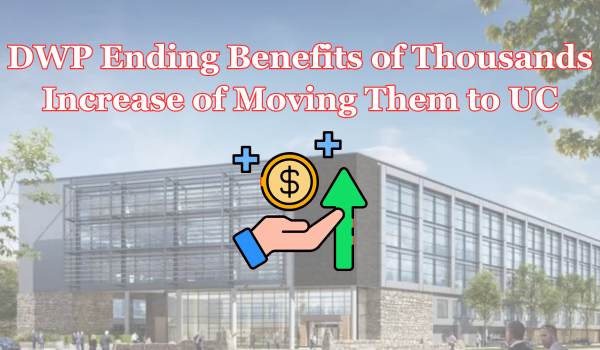Here, you will find all the essential information concerning the DWP Ending Benefits of Thousands instead of Moving Them to UC: Full News. The Department for Work and Pensions is transitioning people from older benefit systems to a single system called Universal Credit. This is meant to simplify the process and encourage work. UC aims to improve the benefits system through this, but the current rollout raises concerns. The DWP needs to address these issues to ensure a smooth transition, particularly during a cost-of-living crisis. Continue browsing this article to know more about DWP Ending Benefits of Thousands instead of Moving Them to UC.
DWP Ending Benefits of Thousands instead of Moving Them to UC
UC is the government’s flagship welfare program, created to facilitate the benefits system and encourage work. It has been gradually replacing older legacy benefits, such as tax credits, housing benefits, and income support. The DWP aims to have everyone migrated to UC by the end of 2025.
However, recent data shows a significant number of over 184,000 have had their legacy benefits discontinued since July 2022 without being automatically enrolled in UC. This represents nearly a quarter of those given notices to move to UC.
Therefore, the reasons behind these sharp benefit terminations remain unclear. Some cases might involve changes in claimants’ circumstances that disqualify them from any benefits. However, concerns exist that administrative issues or a lack of communication from the DWP could be leaving people financially vulnerable.
Analysts argue that the DWP should prioritize ensuring a smooth transition for all claimants, providing clear guidance and support throughout the process. The short halting of benefits, particularly during a cost-of-living crisis, can have devastating results for those who depend on them for basic essentials.

Many people on DWP benefits may be unaware of the differences between them and UC. Universal Credit is paid monthly in arrears, unlike some Department for Work and Pensions benefits paid weekly. This can create a cash flow gap, causing hardship for those budgeting on a regular basis. Additionally, UC has a more rigid conditionality, requiring claimants to actively seek work or participate in job training programs to maintain their benefits.
The DWP Ending Benefits of Thousands instead Moving Them to UC mainly because the critics assert that the DWP should prioritize ensuring a smooth transition for all claimants, providing clear guidance and support throughout the process. The short healing of benefits, particularly during a cost-of-living crisis, can have devasting results for those who rely on them for basic necessities.
Full News
The DWP maintains that the transition to UC should be seamless and offers support to help claimants navigate the process. However, reports suggest many are experiencing delays, facing complex application procedures, and struggling to get adequate support from the DWP.
Furthermore, some claimants may lose out financially under UC; while transitional protection measures exist to maintain income levels for some, not everyone qualifies. This can leave individuals with a reduced income at a time when the cost of living is rising sharply.
The DWP Ending Benefits of Thousands instead of Moving Them to UC concerns prompted calls from charities, opposition parties, and financial experts for a review of the DWP’s handling of the UC rollout. They emphasize the need for more straightforward contact, improved support for helpless claimants, and a fairer growth process that doesn’t leave people worse off.
With the hundreds of thousands yet to migrate to UC, the DWP faces a significant challenge in ensuring a smooth and successful transition for everyone. Addressing the current issues surrounding stopped benefits, providing satisfactory support, and ensuring financial security for claimants during this critical period is vital.
The success of UC ultimately depends on its ability to genuinely support people into work and lift them out of poverty, not create additional hardship for those already working. Only through careful monitoring, addressing flaws in the rollout, and prioritizing the well-being of claimants can UC fulfil its intended intent.
Continue Browsing CMI home to get more information.
